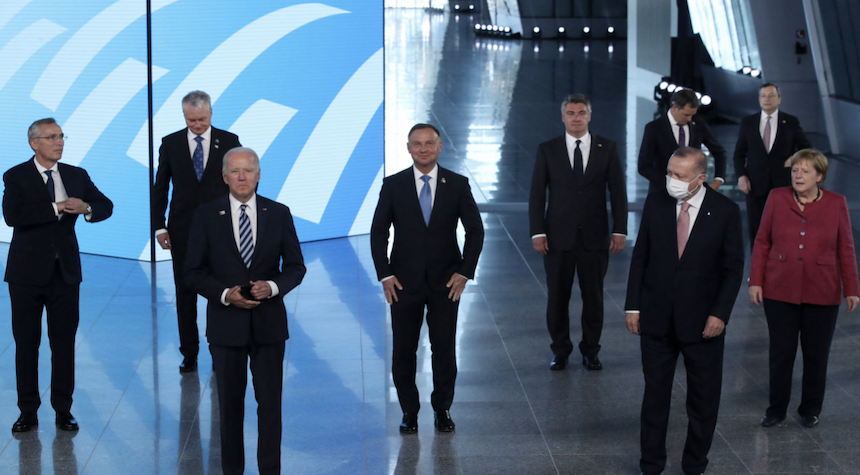The Turkish government officially dropped its opposition to Sweden joining the North Atlantic Treaty Organization.
In parts of Europe, interest in NATO membership is on the rise following Russia’s invasion of Ukraine. This was perceived as part of a larger effort by Russian President Vladimir Putin in order to restore Russia’s Cold War boundaries.
One sticking point has been Ukraine, which is still at war with Russia. It is now seeking diplomatic asylum. The other NATO members could be drawn into the conflict, further complicating an already fragile situation.
President Joe Biden warned NATO not to allow Ukraine to join their alliance because of this very reason. However, his stance is at odds with many of our closest allies.

Biden tried to resolve any differences when NATO Secretary General Jens Stoltenberg welcomed him at the summit on Tuesday. Biden stated that “We agree with the language you propose in relation to the future of Ukraine’s ability to join NATO.” “And we are looking for a united NATO.”
A U.S. official said that U.S. diplomatic staff involved in the negotiations for a communique have attempted “to bridge any gaps among allies to reach consensus.” We have therefore sought to agree on language that reflects Ukraine’s progress in its Euro-Atlantic ambitions, and which allies could agree upon.
Biden’s concerns about Ukraine’s bid to join NATO – he has raised that doing so too soon could cause World War III – have frustrated officials in Kyiv.

It’s not just Ukraine. Gitanas Nuseda, the Lithuanian president, said that inviting Ukraine to NATO would be Lithuania’s strategic responsibility. It would also firmly connect Ukraine to Euro-Atlantic Security Architecture.
He said also, in a more concise way, that “Ukraine is deserving of an invitation.”
NATO’s core agreement is the problem: An attack on one member means an attack on the entire alliance. This mutual defense pact, which was originally a philosophical concept when NATO was formed in response to a Russian menace, was at the core of its founding. Most of the world does not want to see World War III erupt, and Biden has made it a priority to end the war in Afghanistan.

The results of the event were disastrous and the Biden Administration has yet to explain how things could have gone so wrong.
The majority of Europe seems to be resignedly aware, however, that an armed conflict between Russia and the West may be inevitable. Biden may not be able to resist the growing calls for Ukraine’s membership in NATO. Russia has almost promised major retribution in Europe if NATO were to invite Ukraine to the fold. However, this does not deter smaller nations that are closer to Russia than the U.S.
Ukraine clearly seeks protection from an aggressive Russia led by Putin. Biden’s main concern is, although it’s not his alone, the threat of an armed conflict with one major geopolitical force.


